National University of Singapore Honours ITI Director T. Sasitharan with FASS Distinguished Alumni Award

National University of Singapore Honours ITI Director T. Sasitharan with FASS Distinguished Alumni Award
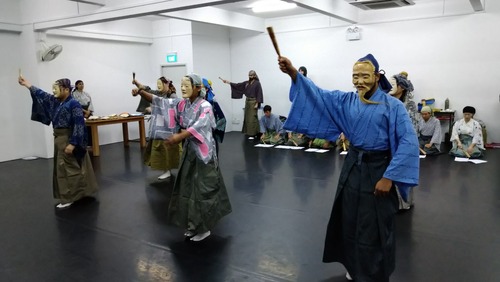
Takashi Kuwata, a Noh actor from the Kanze school, shares his experience teaching at the Intercultural Theatre Institute (ITI) in Singapore.

The Japanese Chamber of Commerce & Industry (JCCI) Singapore was invited to ITI's 2019 Noh presentation. Their article on the presentation was published in the June 2019 issue of the JCCI magazine.

ITI's master teacher, Kanze Yoshimasa accounts his teaching experience in ITI, published in Kanze Kyukohkai's newsletter.
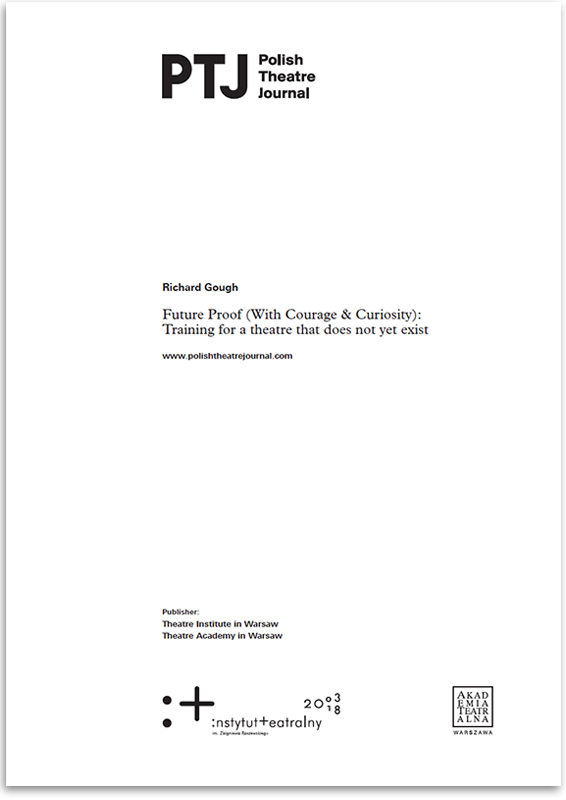
Richard Gough explores the strategies, conditions and precedents of a theatre-training programme aimed to nurture practitioners not for the profession as it currently exists but rather for how it might be – in the future, as yet, unforeseen and unimagined. ITI is mentioned as one such example.

ITI alumnus Sankar Venkateswaran’s production of The Water Station was reviewed by Mari Boyd for the Asian Theatre Journal. Sankar's and ITI's philosophy of intercultural exchange are mentioned in the review.

The Institute of Policy Studies (IPS) has published a full report on their Roundtable on The Future of Cultural Leadership in Singapore, which was held on 27 October 2017. ITI Director T. Sasitharan and ITI Chairman Arun Mahiznan, who is also a Special Research Adviser at IPS, were presenters at the roundtable.
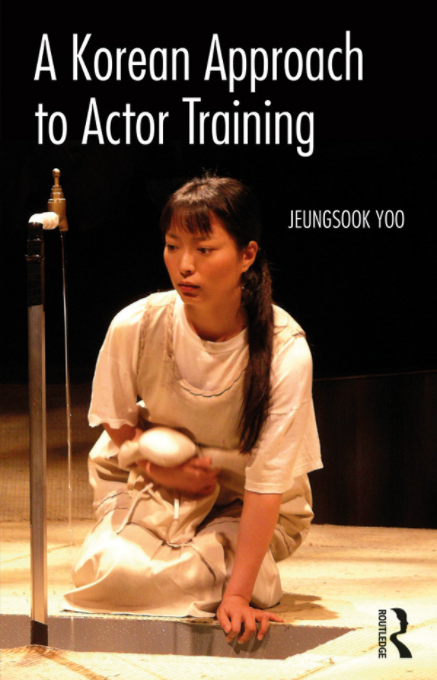
A Korean Approach to Actor Training develops a vital, intercultural method of performer training, introducing Korean and more broadly East Asian discourses into contemporary training and acting practice.
Jeungsook Yoo draws on her experience in productions including ITI's (then known as TTRP) production of Water Station.
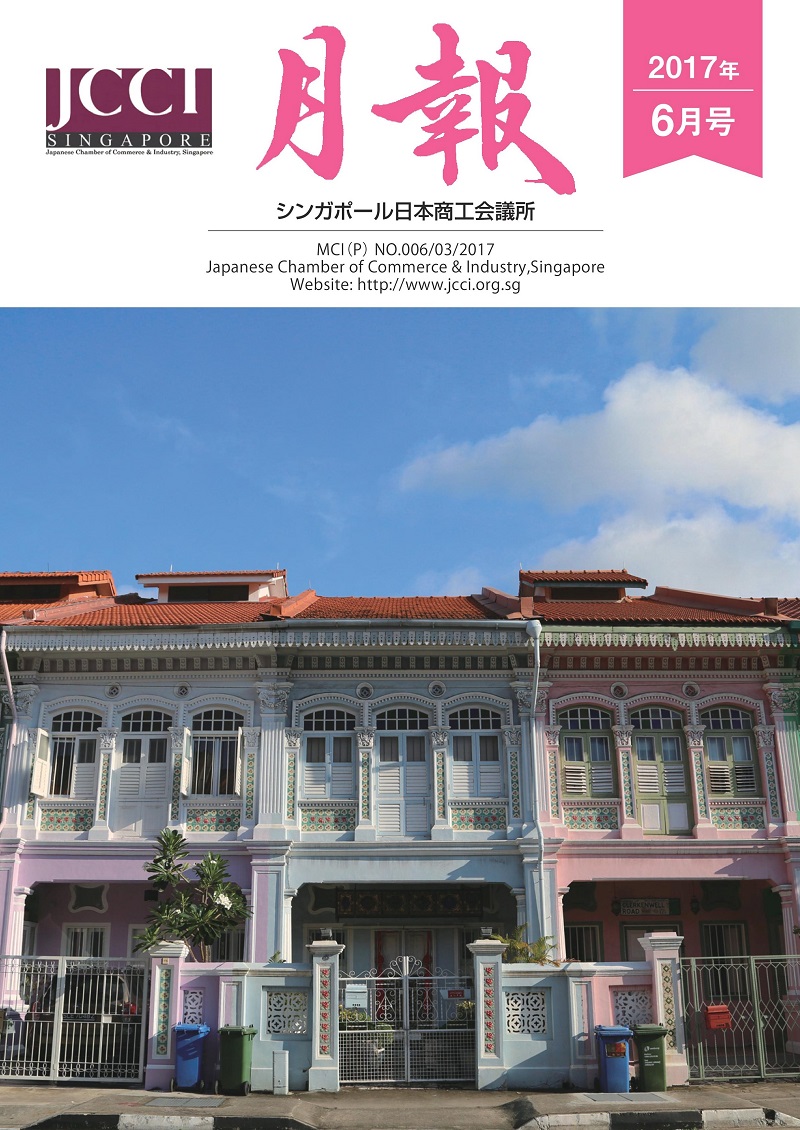
The Japanese Chamber of Commerce & Industry (JCCI) Singapore was invited to ITI's 2017 Noh presentation. Their article on the presentation was published in the June 2017 issue of the JCCI magazine.
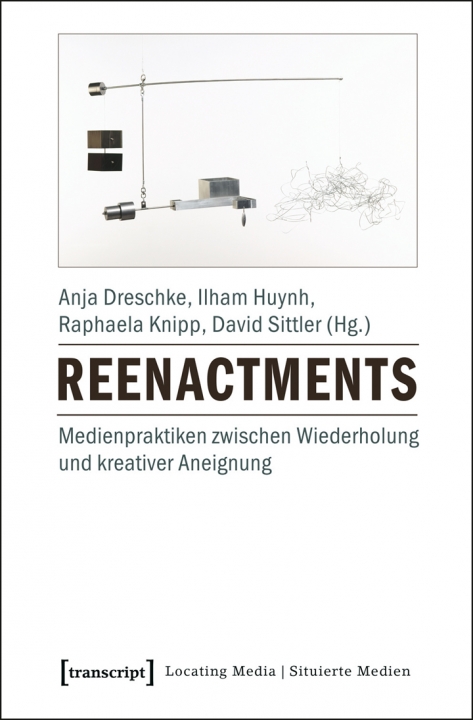
Reenactments as media practices of re-staging and re-experiencing never just repeat, but are always creative-productive media appropriations, which in turn create new medial forms.
Higher Education and the Creative Economy critically engages with the complex interconnections between higher education, geography, cultural policy and the creative economy.

This yearbook is the third in an annual series of publications by the International Network for Research in Arts Education (INRAE). It provides an inclusive study of contemporary research trends in arts education. The book is based on the idea of constructing knowledge in arts education with the wisdom of the many. 104 scholars from across the world convey the zeitgeist of key issues in research in arts education through 91 entries.

This book proposes that the highest expression of ethics is an aesthetic. It suggests that the quintessential performance of any field of practice is an art that captures an ethic beyond any literal statement of values. This is to advocate for a shift in emphasis, away from current juridical approaches to ethics (ethical codes or regulation), toward ethics as an aesthetic practice—away from ethics as a minimal requirement, toward ethics as an aspiration.

This edited book not only makes a much-needed contribution to research in arts education but also provides a strong grounding of evidential support for Singapore arts education, in contrast to the current state of affairs in arts education in many parts of the world where severe cuts in funding, lackluster support for the arts and imperialist agendas are pervasive. The case of and for Singapore – presented in this edited book through rich descriptions of the dedicated, contextualized practices of arts educators, artists and researchers – offers readers many valuable lessons and reflections on the continued survival and advancement of arts education.
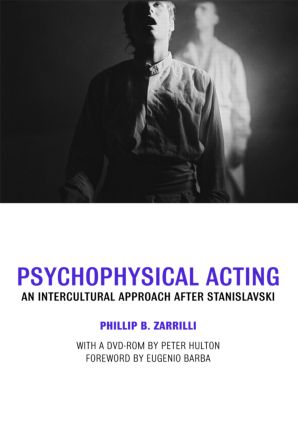
Psychophysical Acting is a direct and vital address to the demands of contemporary theatre on today’s actor. Drawing on over thirty years of intercultural experience, Phillip Zarrilli aims to equip actors with practical and conceptual tools with which to approach their work.

ITI Director T. Sasitharan was invited to a Drama Box dialogue with two other key players in arts education, Nazreen Osman and Kenneth Kwok. They discussed the implementation of arts education in schools, their roles in arts education and the challenges they faced. An excerpt of the dialogue was published on the Drama Box website.
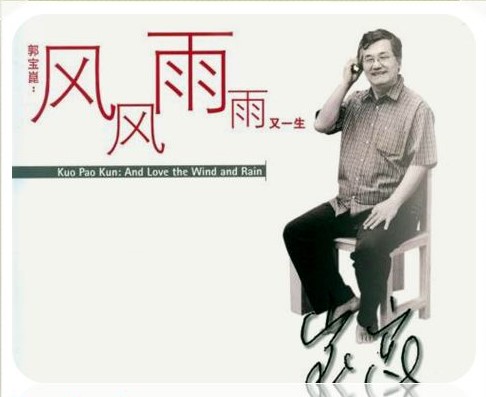
This book is a loving tribute to "the most important cultural figure in Singapore's history" and a most significant dramatist, teacher and public intellectual in Asia. Both visually and intellectually strong, this book - including the video CD - weaves a rich tapestry of Kuo Pao Kun's lifework. The book is bilingual in Chinese and English, with some translations in Malay and Tamil.
Proceedings of the Asia-Pacific Traditional Arts Forum, held on 9-12 October 2000 at the National Center for Traditional Arts, Taiwan.